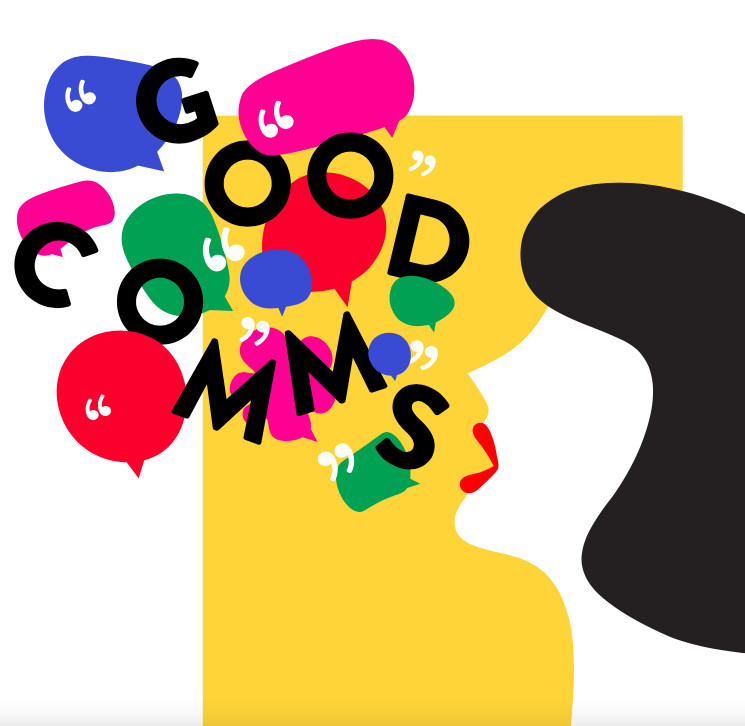
So much of bartending depends on good communication. Nicolas Medicamento, aka Doctor Cocktail, talks us through his top tips for effective engagement.
Bartending isn’t just about making drinks – so much of what we do is about communication. And if you’re someone who wants to climb the ladder and one day position yourself as an industry leader, there’s no more important skill to hone.
The way we communicate has a role in our everyday interactions with guests, the way we collaborate with colleagues and share knowledge. If you are a bartender who takes part in competitions, clear, structured communication brings stories to life. If you mentor or train your team, good communication allows you to deliver complexity in a digestible format. And if you would one day like to become an industry thought leader, the expression of your ideas is almost as important as the ideas themselves.
So how do you communicate better? Here are my recommendations:
Active listening
Active listening is the cornerstone of effective communication. It involves paying attention to the speaker, avoiding distractions and providing feedback. Bartenders who actively listen can better understand their guests’ needs and preferences, leading to improved service.
Focus on the speaker/audience: Give the speaker/audience your undivided attention. Avoid switch tasking or engaging in other activities that might distract you. Maintain eye contact and show genuine interest in what the speaker has to say.
Avoid interruptions: Let the speaker finish their thoughts before responding. Avoid interrupting or jumping in with your own ideas. This shows respect for the speaker and demonstrates that you're actively listening.
Mirroring/questions: Use verbal and nonverbal cues to show you’re engaged. Open your body and repeat the last few words mentioned. Asking clarifying questions can also show that you’re actively listening and trying to understand the speaker’s message.
Starting with the ‘end in mind’
Before you begin listening, consider your goals for the conversation. What do you want to give? What do you want them to take? In our seminars on public speaking and communication we mark the importance of having a clear purpose that can help you focus your attention and ensure you’re listening for the right information.
Adaptability: Adaptability is essential for effective communication in our industry. Bartenders, trainers and speakers must be able to adjust their communication style to different audiences, including customers, colleagues and industry professionals.
Understand your audience: Take the time to learn about your audience’s background, interests, and knowledge level. This will help you tailor your message to their specific needs and preferences. Consider their age, cultural background and any relevant experiences or interests.
Choose your words wisely: Use language that is as simple as possible. Avoid using complicated terms that may confuse them. Instead, use clear and concise language that is easy to understand.
Be mindful of cultural differences: If you’re communicating with someone from a different culture, be aware of cultural norms and customs. Avoid making assumptions or generalisations. Research cultural differences in communication styles, body language and etiquette to ensure that your messages are understood and respected.
Seek feedback: Be open to being vulnerable, ask for feedback from others to help you identify areas where you can improve your communication skills. Pay attention to how people respond to your messages and adjust accordingly.
By understanding your audience, choosing your words wisely, being mindful of cultural differences and adapting your communication style, you can become a more effective communicator and build stronger relationships with others.
Nonverbal communication and vocal cues
Nonverbal communication, often referred to as body language, plays an important role in interactions. While words convey explicit messages, nonverbal cues can communicate emotions, attitudes and intentions implicitly. Mastering nonverbal communication can enhance your interactions with customers, colleagues and industry professionals.
Body language: Your gestures, posture and facial expressions can significantly impact how others perceive you. An example could be (in some cultures) maintaining eye contact, which demonstrates interest and engagement, while a relaxed posture can convey confidence and approachability.
Gestures: Hand gestures can add emphasis, or even replace words. However, excessive gesturing can be distracting or perceived as unprofessional. Use gestures to enhance your communication, not distract your audience.
Vocal cues: In addition to body language, your voice plays a crucial role in communication. The tone, volume and pace of your speech can convey a wide range of emotions and attitudes. Drinking alcohol the day of the talk/competition or day before is not going to help you vocal cords. Pay attention to your tone and lifestyle, ensuring it aligns with your message and the desired outcome.
By mastering your mindset, verbal and nonverbal communication, you can enhance your interactions with guests, colleagues and industry professionals, ultimately leading to greater success in your life and career.


